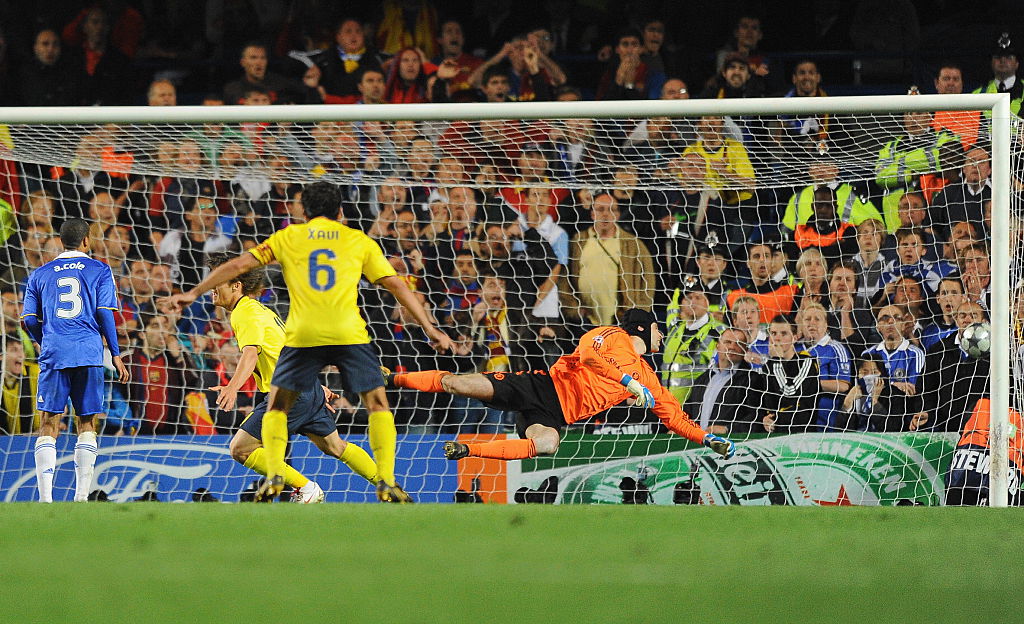Ranked! The 100 best football players of all time
The 100 best football players who have ever lived: from Messi to Maradona, Cristiano to Cruyff and everyone in between
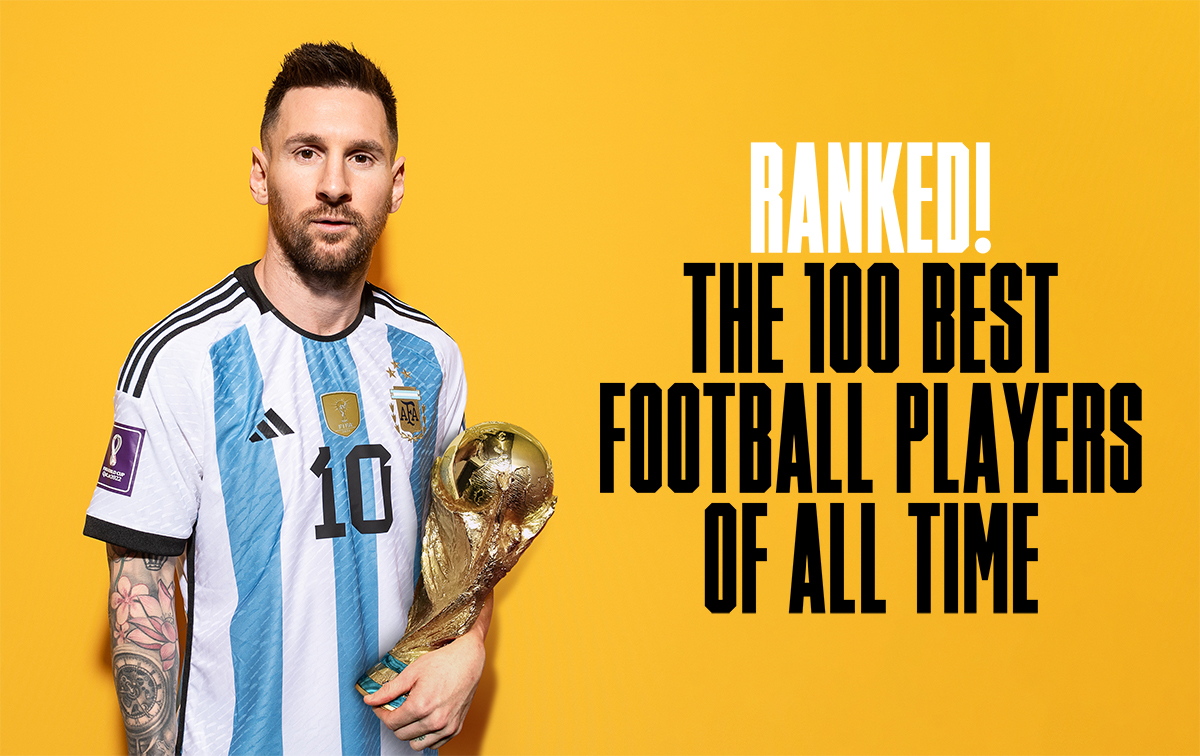
Of the 100 best football players of all time, footballers from bygone eras compete with stars from the modern game, though fewer and fewer are still showcasing their talents in the glare of the European game. In fact, two of our top 10 have left the continent in recent times.
With Lionel Messi and Cristiano Ronaldo riding off into the sunset of warmer climes, it's easy to become misty-eyed about the good old days; of how we'll never see another pair quite like those again. But when they do eventually call it a day, their absence will leave no void: it's just the turning of a page. Football is cyclical: nothing is new and in a century and a half of the beautiful game, we've seen just about everything possible. The rise of dynasties, the fall of gods, the downright unexpected and scripts we all saw coming.
This is the complete compendium of characters who played the heroes and villains along the way. Every man who held GOAT status in the eye of any beholder: the definitive century of the greatest footballers to ever grace the grass. Don't agree? Of course, you don't!
The 100 best football players of all time
100. Gheorghe Hagi
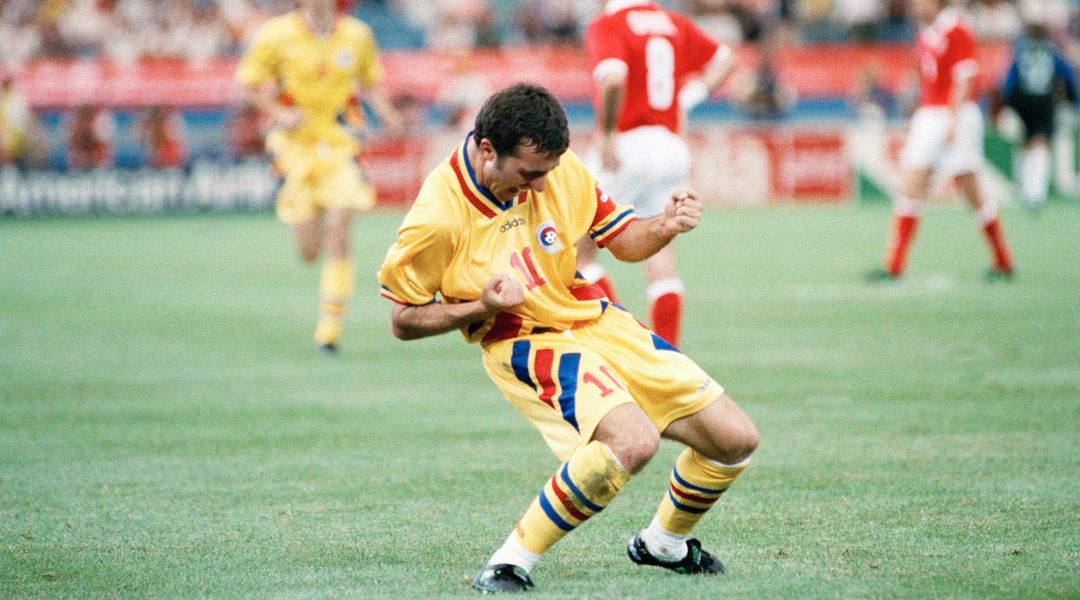
With one of the odder career trajectories among modern-day greats, Hagi spent the best part of a decade as an impossibly prolific attacking midfielder in Romania’s top flight, before two hit-and-miss years at Real Madrid and later a similar spell at Barcelona.
Sandwiched between his time at the two Spanish giants was a heartwarming two years in Italy, where he was part of Mircea Lucescu’s ‘Little Romania’ contingent at Brescia. He endured relegation in his first season but stayed loyal to the club despite better offers, and fired them back into Serie A.
Aged 30 and supposedly winding down towards retirement, he joined Galatasaray, where he spent a laughably fruitful half-decade cementing living-legend status and hoovering up another 10 medals.
Career highlight: USA 94, when Romania reached the quarter-final of the World Cup (knocking out Argentina on the way), inspired by Hagi and his magical left foot.
Get FourFourTwo Newsletter
The best features, fun and footballing quizzes, straight to your inbox every week.
99. Mario Kempes
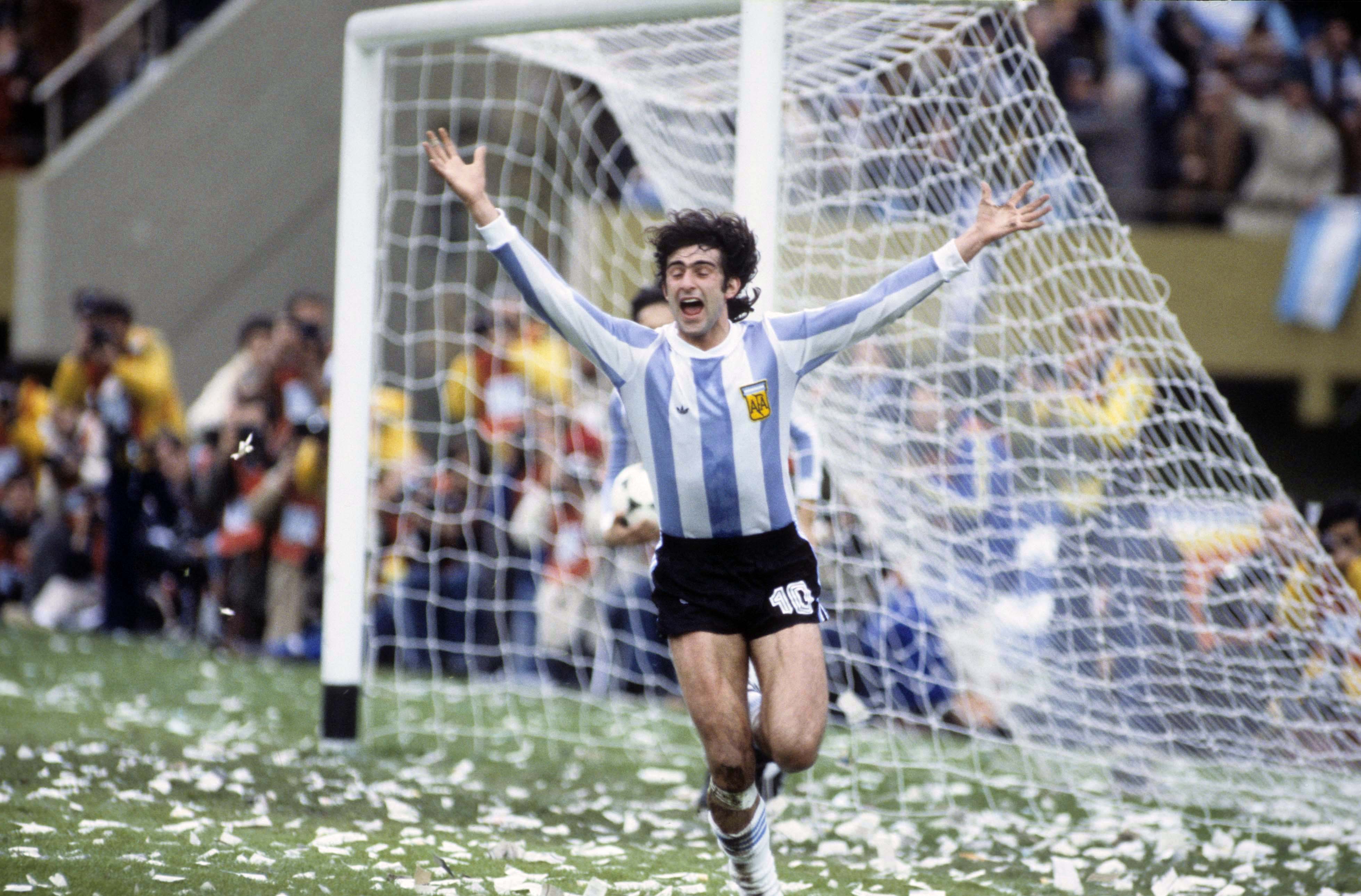
Only four Argentines have been crowned as top scorer in La Liga, and Kempes is one of them. He was feared as a burly and effective striker for Valencia, scoring at will, especially in 1976/77 and 1977/78. Kempes also led the club to a European Cup Winners' Cup triumph in 1980.
However, he is best known for his explosive finishes during the 1978 World Cup on home soil. He nabbed six goals and was top scorer of the tournament. In doing so he picked up the Golden Ball, too, becoming just the third player to have lifted the trophy and both awards at a single World Cup, along with Garrincha and Paolo Rossi.
Career highlight: How about scoring two goals in a World Cup final for a highlight? Kempes netted twice against Holland, including the all-important winner in extra time.
98. Teofilo Cubillas
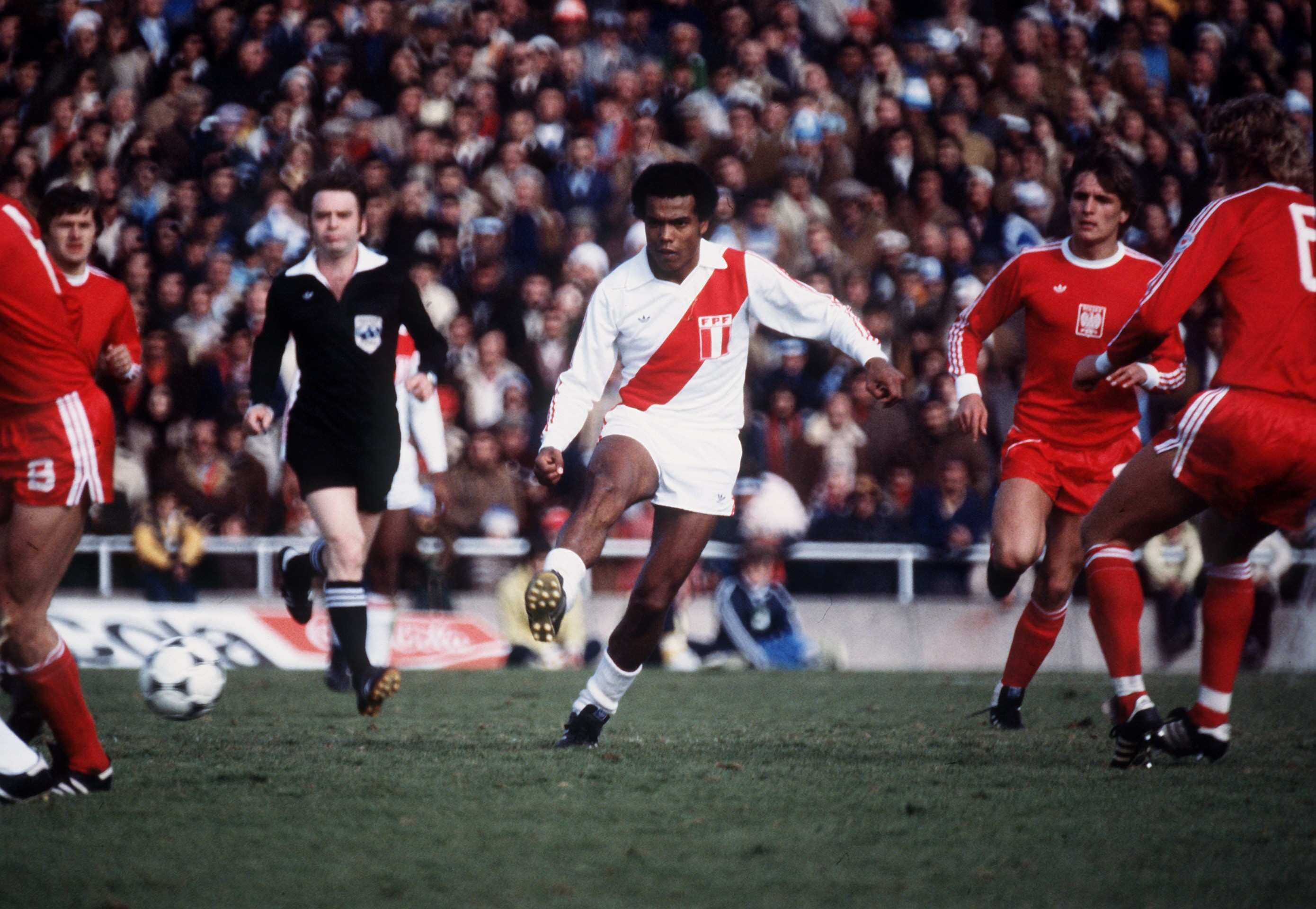
The greatest Peruvian player in history, Cubillas is remarkably the only non-German to have scored at least five goals at two different World Cup tournaments, in 1970 and 1978 (he scored five in both).
Blessed with outstanding vision and a powerful shot, he was a phenomenal set-piece specialist, usually striking the ball with the inside of his foot. Having scored at will for his beloved Allianza Lima, he was also successful at Porto and later played at Fort Lauderdale Strikers alongside George Best.
Career highlight: Cubillas led Peru to their second (and the last so far) Copa America triumph in 1975, where they beat the mighty Brazil in the semi-finals.
97. Jimmy Johnstone

Until Jock Stein arrived at Parkhead in 1965, both Celtic and the mercurial 'Jinky' Johnstone were struggling for consistency. Initially, Stein felt the outside-right was too much of an individual, but showed faith in the player who was at the fulcrum of his side for the next decade.
One of the Lisbon Lions (the Celtic team which beat Inter in 1967 to become the first British club to win the European Cup), Johnstone's superb performance during Alfredo Di Stefano's testimonial in Madrid in the same year prompted the supporters inside the Bernabeu to chant “Ole!” everytime he received the ball.
Career highlight: Informed by manager Stein that, if he played a blinder in the first leg of a European tie in 1968 he wouldn't have to travel to Red Star Belgrade for the return, 'Jinky' pulled out all the stops, scoring twice and setting up two more goals in a 5-1 win.
96. Javier Zanetti
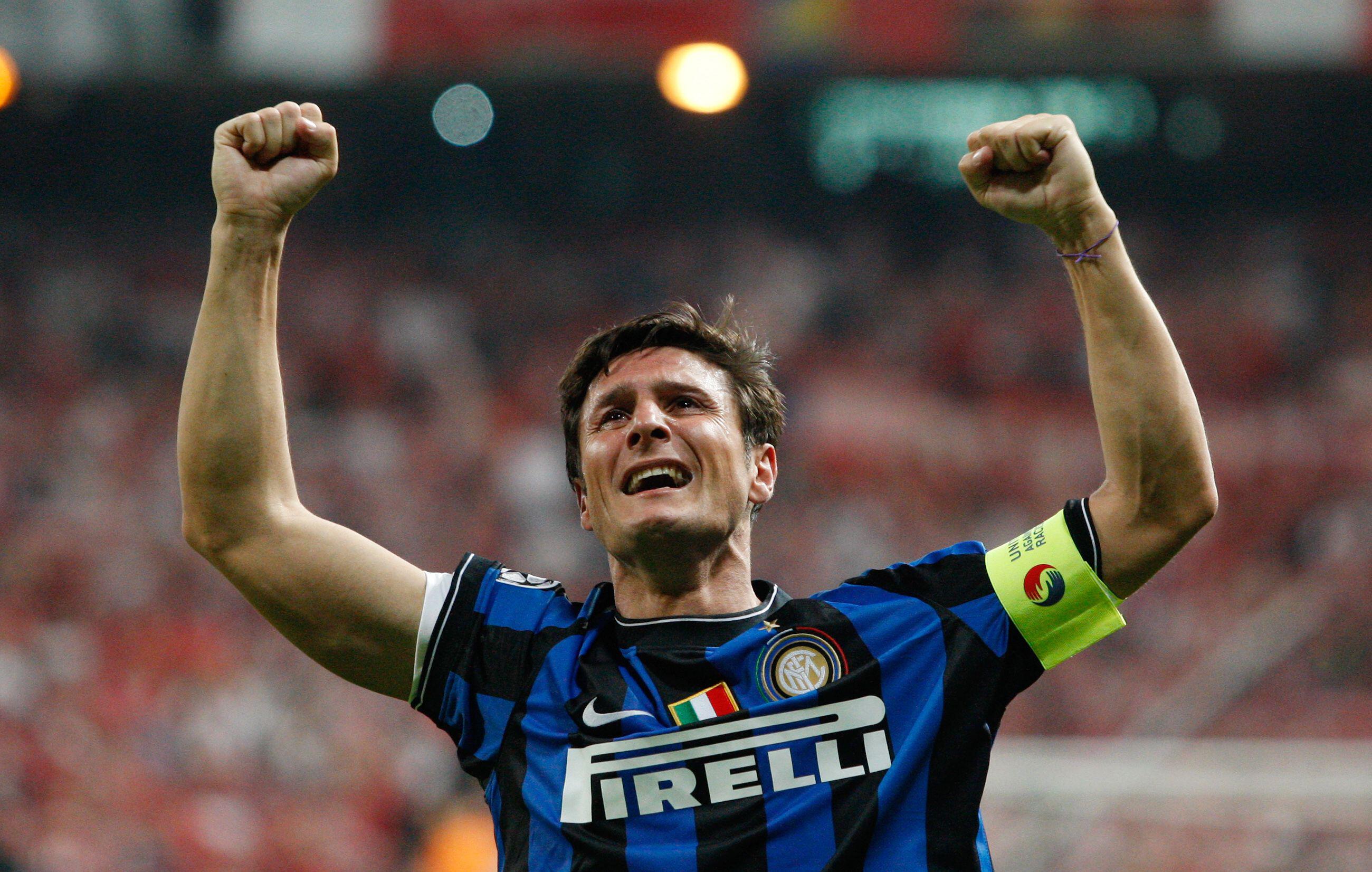
If he's not the finest right-back the world has seen, he may have remained a world-class performer for longer than any other individual on this list.
During 19 years at Inter, which followed his early club career in Argentina and came amid some of the Milan side’s most volatile years, he made a club-record 858 appearances and won 16 trophies before retiring aged 40. The stamina and footballing brain that made him such an outstanding full-back were complemented by a technical ability that meant he also later excelled in midfield.
In total, the Argentine appeared in 1,115 competitive matches in his career, with his longevity bested only by a select few.
Career highlight: Captaining Inter to the Treble in 2010, which ended their 45-year wait to regain the European Cup.
95. Djalma Santos
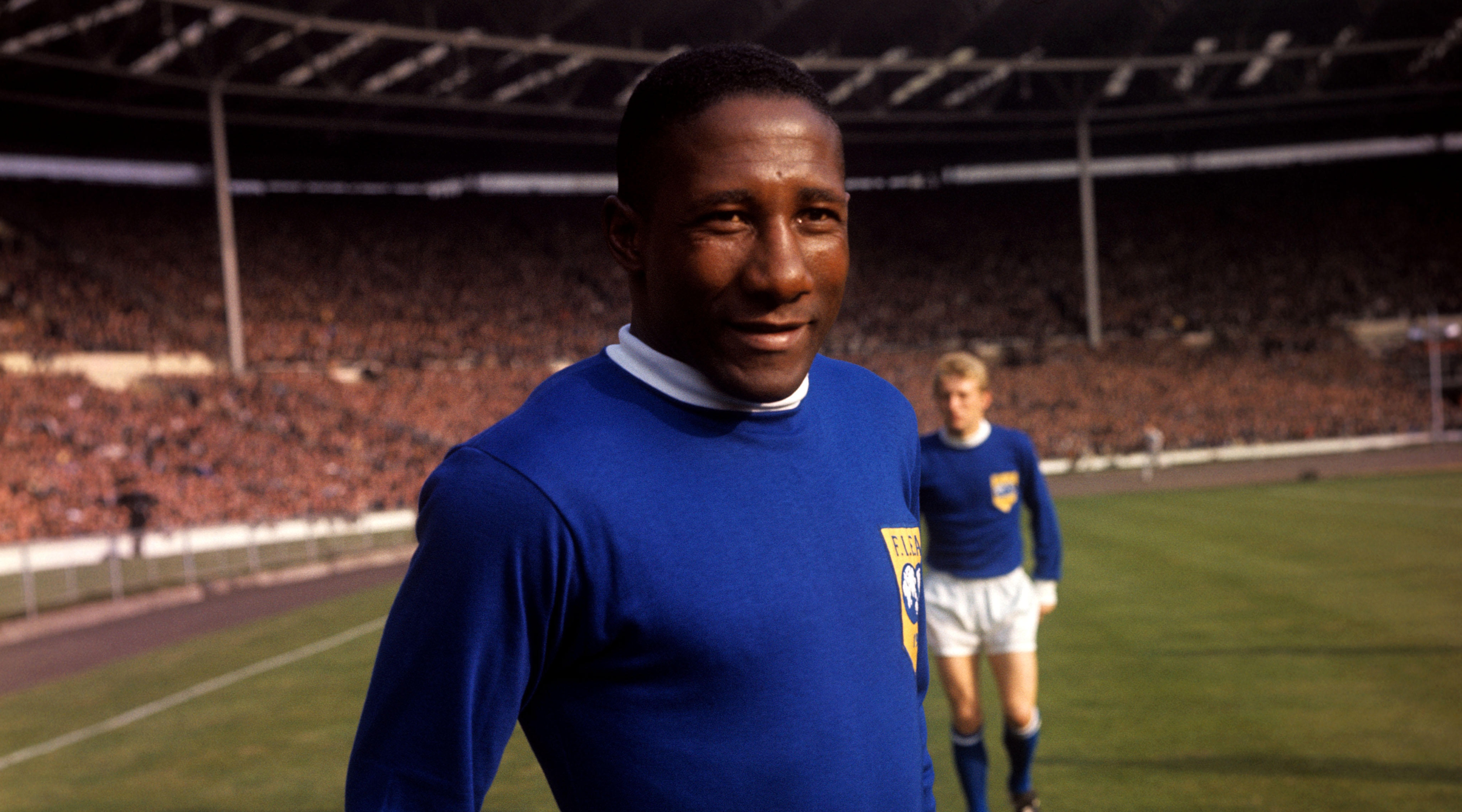
Nominated by former team-mate and compatriot Pele in his list of the 125 greatest footballers, the two-time World Cup champion was the first Brazilian to collect 100 international caps. He started just one game in the 1958 World Cup but was still chosen as the best full-back of the tournament. So that must have been some display.
Along with left-back Nilton Santos, Djalma Santos rarely held back, starting the Brazilian tradition of attacking defenders and providing a template for the position's future.
Career highlight: In the final of the 1962 World Cup against Czechoslovakia, Santos set up the final goal scored by Vava for Brazil.
94. Philipp Lahm
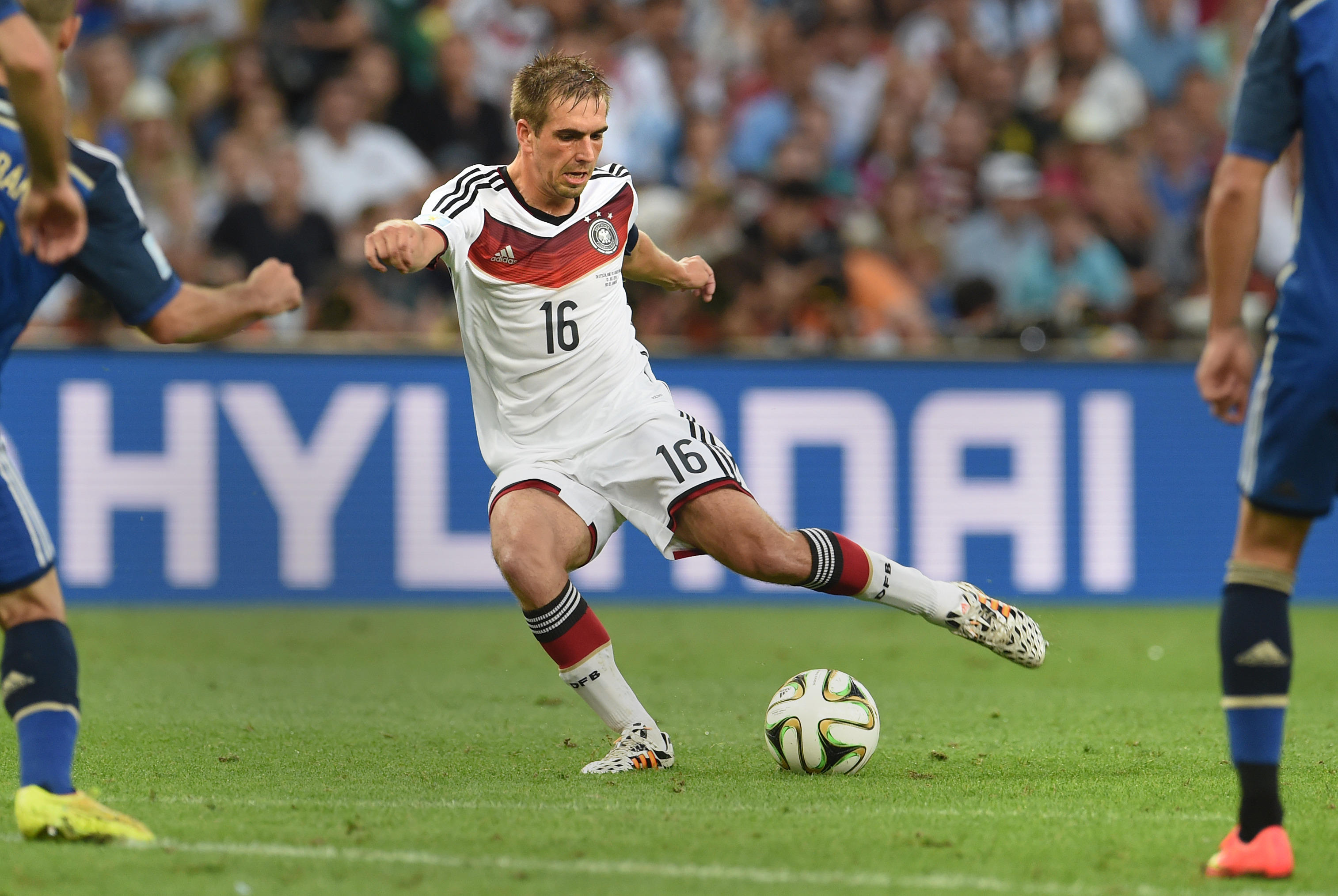
One of those players whose greatness only dawns on you over time. Lahm was present and crucial to a number of era-defining sides of the modern era – Jupp Heynckes’s Bayern Munich, Joachim Low’s Germany and latterly Pep Guardiola’s Bayern – and yet his understated style meant for a long time that his majestic standards went underappreciated.
Not any more, though: Lahm retired in 2017 as a bona fide modern great, a footballer of astounding intelligence and technique who played two very different positions to absolute perfection. His medal collection (from World Cup triumph with Germany to every trophy worth winning at Bayern) provides sound evidence of a career well spent.
Career highlight: Reinventing himself as a central midfielder, with astounding ease, to captain Guardiola’s shimmering Bayern side to three consecutive Bundesliga titles.
93. Kylian Mbappe
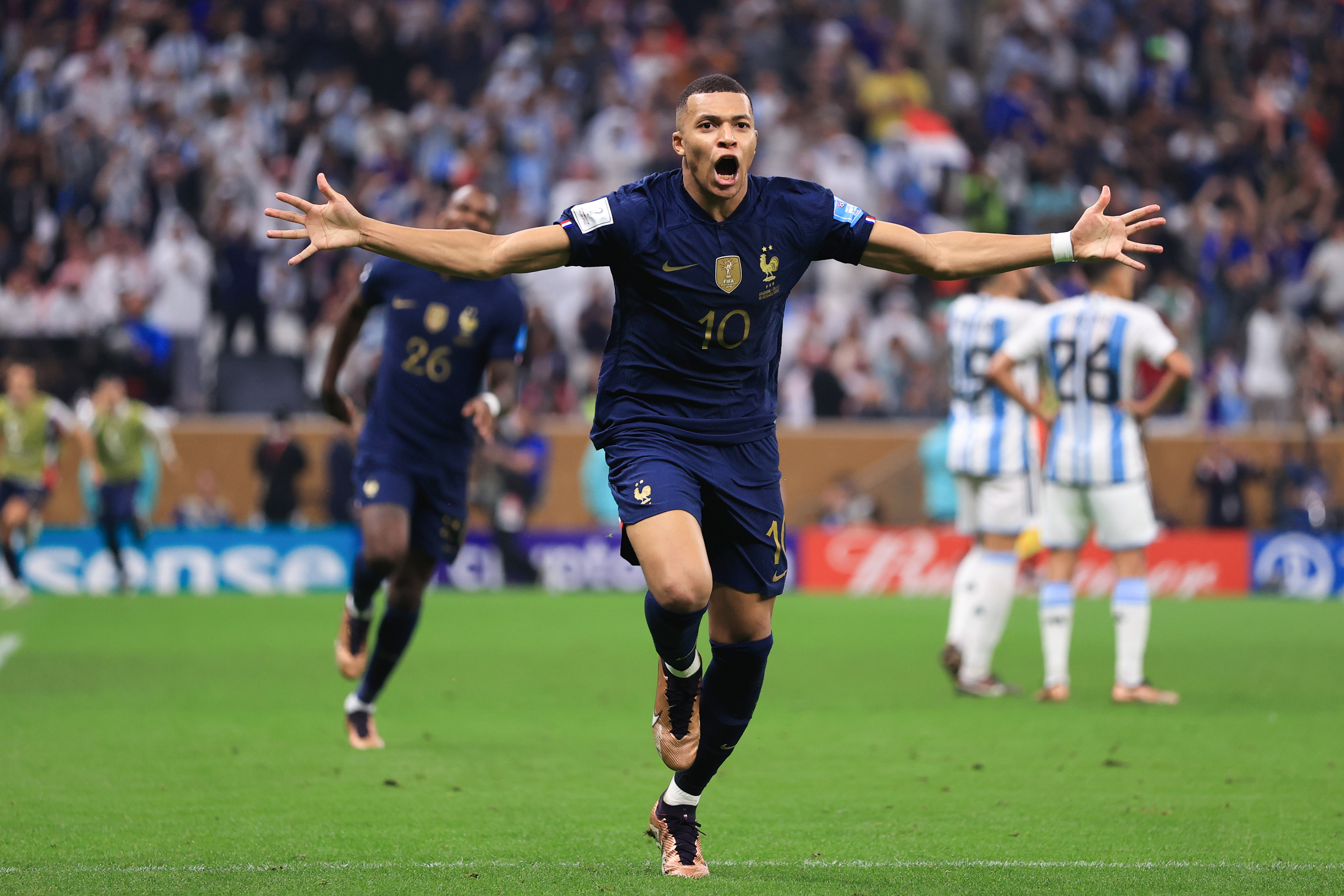
“Do I feel under pressure heading into the World Cup? No, for me, football is all about pleasure. A World Cup comes along only once every four years. You can’t afford to let it pass you by.”
Those were Kylian Mbappe’s words to FourFourTwo at the beginning of 2018. Years later, his career will forever be inextricably linked with the tournament. Though he's still only midway through his career and way too young to normally be considered for lists like this, Mbappe could retire now and leave a legacy that will undoubtedly stand the test of time. Who knows where he’ll rank when his playing days come to an end?
No player has ever reached 12 World Cup goals at such a young age. Already, he’s matched Pele’s tally. Already, he’s only four behind record holder Miroslav Klose. He matched Geoff Hurst's World Cup final hat-trick in 2022, too. It’s quite possible that Mbappe could still have three World Cups ahead of him. If the first two have been any guide, he won’t let them pass him by.
Career highlight: Becoming the youngest player since Pele to score in a World Cup final, as he lifted the trophy with France in 2018.
92. Sandor Kocsis
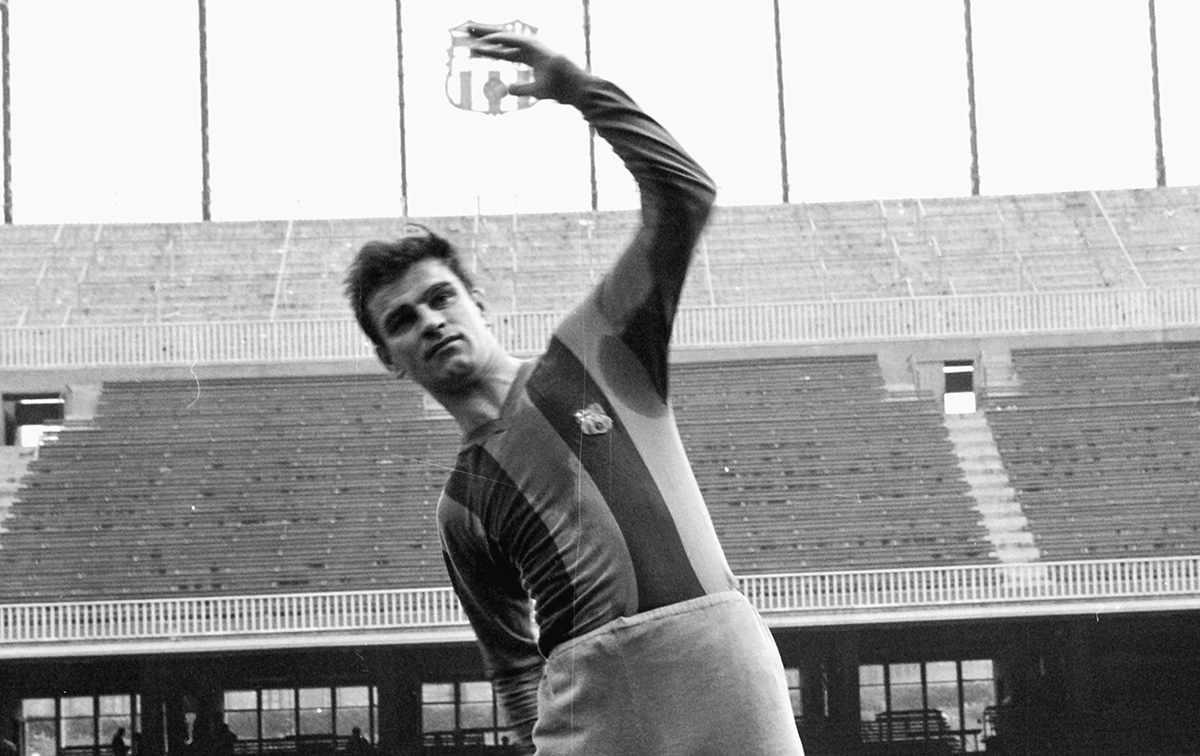
Arguably the greatest header of a ball ever, Kocsis scored at incredible rate. He found the net 75 times in 68 games for his national side, winning the Olympic tournament in 1952, and averaged more than a goal-per-game in his seven seasons at Honved, winning three league championship titles.
Kocsis moved to Barcelona in 1958 and won La Liga in his first two seasons in Catalonia, although his spell there was sadly interrupted by injuries.
Career highlight: Kocsis was the top scorer with 11 goals at the 1954 World Cup, where a majestic Hungarian team should have won the trophy, but lost to West Germany in the final.
91. Giacinto Facchetti
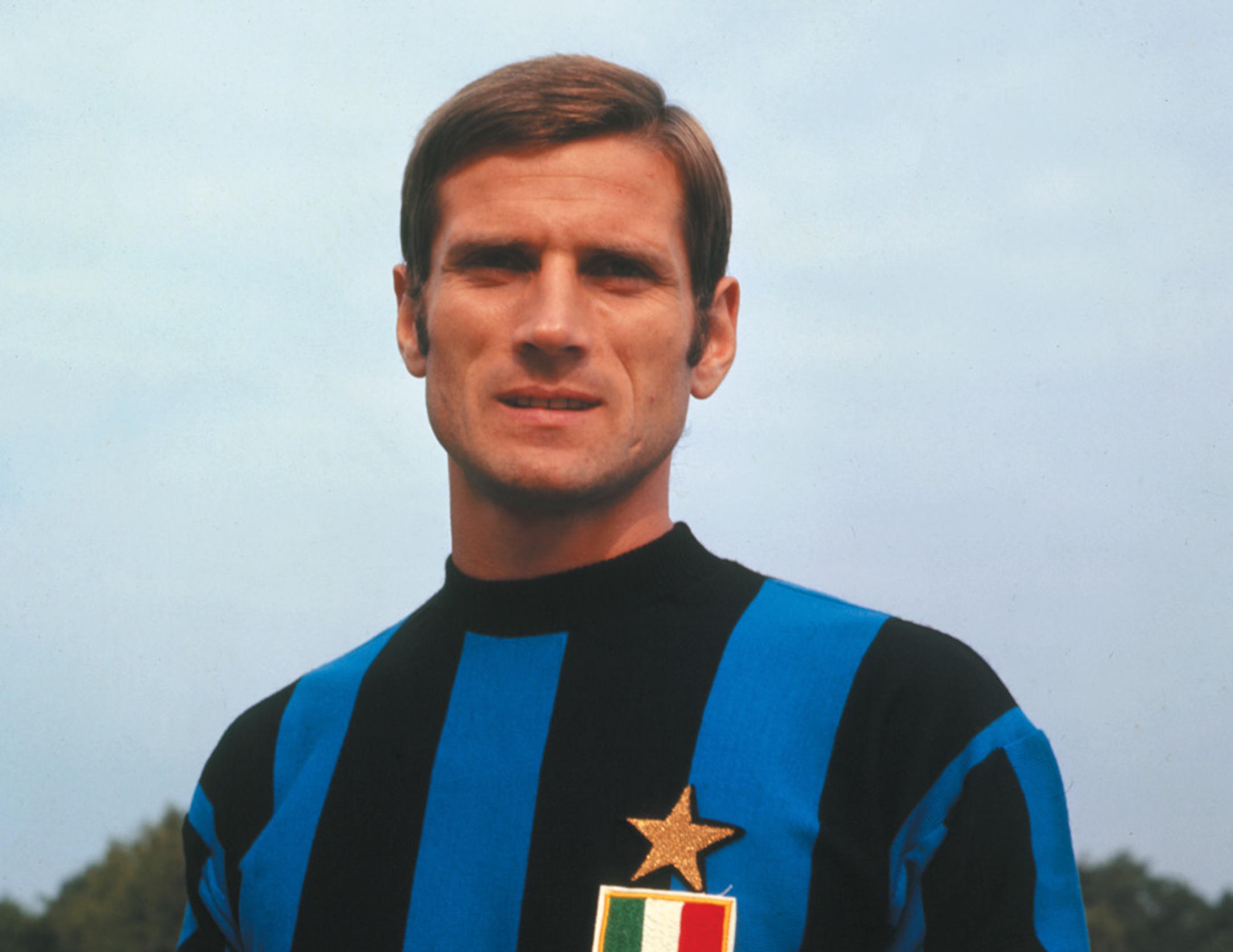
In the 1970 World Cup Final, Brazil saw the future. He was playing at left-back for the opposition, who O Canarinho were busy beating 4-1 at the time.
Italy’s Giacinto Facchetti invented the modern full-back. Converted by Inter coach Helenio Herrera from a centre-forward into a right-footed left-back, Facchetti provided the deep-lying attacking thrust in a defence-first catenaccio system which dominated Italian football from the mid-1960s for three decades.
“Those who copied me copied me wrongly,” Herrera later said of his Inter side. “I had Picchi as a sweeper, yes, but I also had Facchetti, the first full-back to score as many goals as a forward.”
In an 18-season career comprising 629 Nerazzurri appearances and 75 goals, Facchetti won four Serie A titles, two European Cups, two Intercontinental Cups and Euro 68 with Italy. Forget Carlos Alberto, Roberto Carlos or any other buccaneering Brazilian: this is where the full-back as a weapon began.
Career highlight: Being part of the first Italian side to defend the European Cup in 1965.
Current page: The 100 best football players of all time: 100-91
Next Page The 100 best football players of all time: 90-81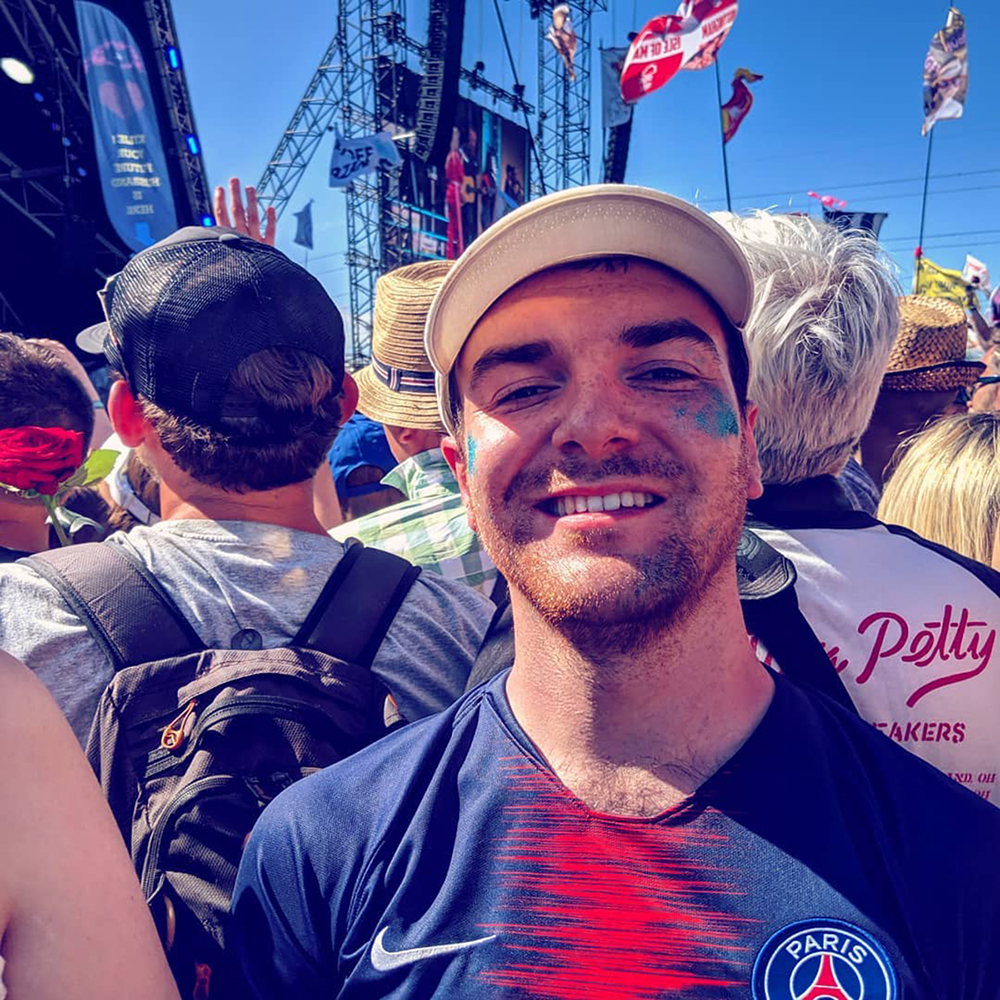
Mark White has been at on FourFourTwo since joining in January 2020, first as a staff writer before becoming content editor in 2023. An encyclopedia of football shirts and boots knowledge – both past and present – Mark has also represented FFT at both FA Cup and League Cup finals (though didn't receive a winners' medal on either occasion) and has written pieces for the mag ranging on subjects from Bobby Robson's season at Barcelona to Robinho's career. He has written cover features for the mag on Mikel Arteta and Martin Odegaard, and is assisted by his cat, Rosie, who has interned for the brand since lockdown.
- Chris FlanaganSenior Staff Writer
- Alex Reid
- Alex Hess
- Marcus Alves
- Adam MonkPresenter/Producer
- Adam Clery
- Declan Warrington
- Jon Spurling
- Michael Yokhin
- Thore Haugstad
